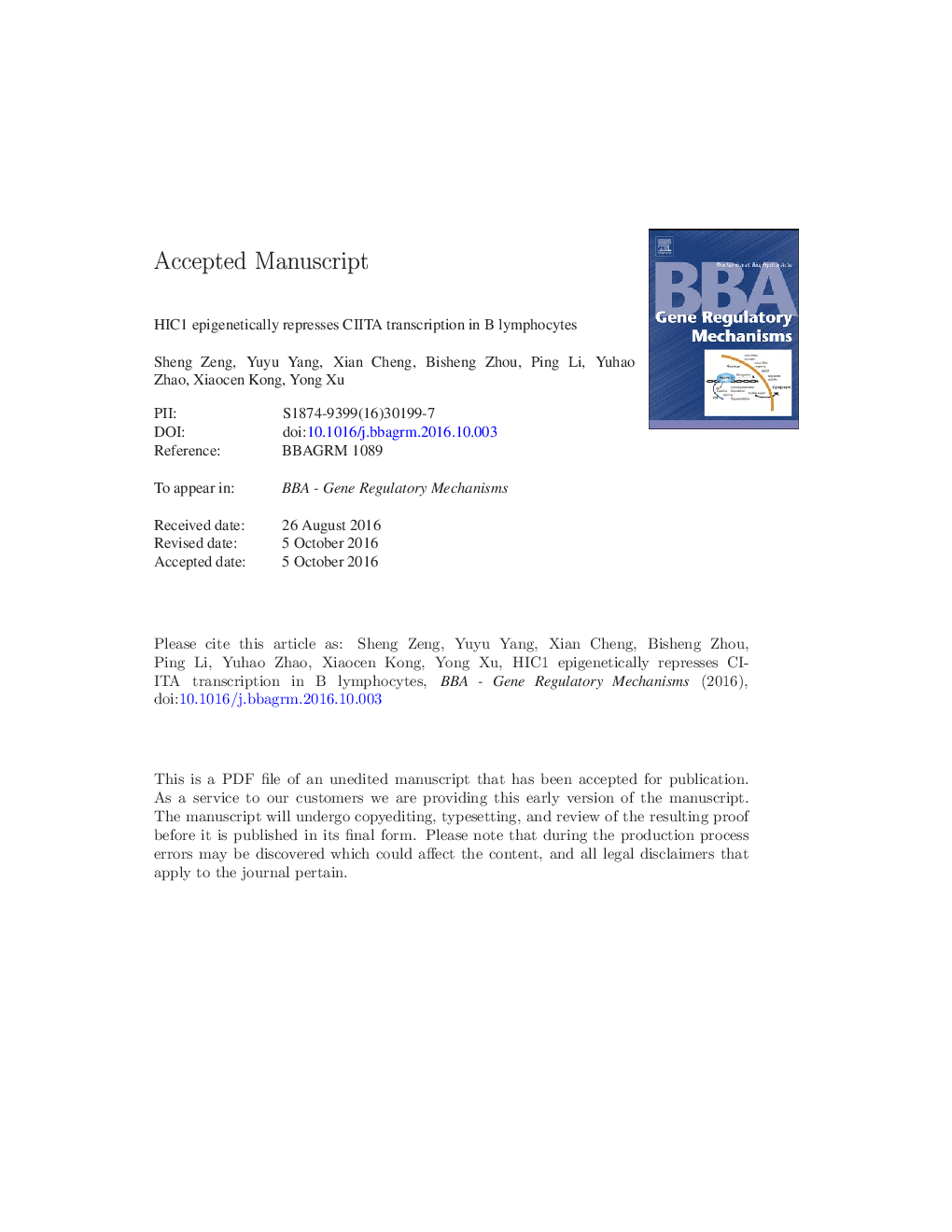| Article ID | Journal | Published Year | Pages | File Type |
|---|---|---|---|---|
| 5507675 | Biochimica et Biophysica Acta (BBA) - Gene Regulatory Mechanisms | 2016 | 29 Pages |
Abstract
Differentiation of B lymphocytes into isotope-specific plasma cells represents a hallmark event in adaptive immunity. During B cell maturation, expression of the class II transactivator (CIITA) gene is down-regulated although the underlying epigenetic mechanism is not completely defined. Here we report that hypermethylated in cancer 1 (HIC1) was up-regulated in differentiating B lymphocytes paralleling CIITA repression. Over-expression of HIC1 directly repressed endogenous CIITA transcription in B cells. Reporter assay and chromatin immunoprecipitation (ChIP) assay confirmed that HIC1 bound to the proximal CIITA type III promoter (â 545/â 113); mutation of a conserved HIC1 site within this region abrogated CIITA trans-repression. More important, depletion of HIC1 with small interfering RNA (siRNA) restored CIITA expression in differentiating B cells. Mechanistically, HIC1 preferentially interacted with and recruited DNMT1 and DNMT3b to the CIITA promoter to synergistically repress CIITA transcription. On the contrary, silencing of DNMT1/DNMT3b or inhibition of DNMT activity with 5-aza-dC attenuated CIITA trans-repression. Therefore, our data identify HIC1 as a novel factor involved in B cell differentiation acting as an epigenetic repressor of CIITA transcription.
Related Topics
Life Sciences
Biochemistry, Genetics and Molecular Biology
Biochemistry
Authors
Sheng Zeng, Yuyu Yang, Xian Cheng, Bisheng Zhou, Ping Li, Yuhao Zhao, Xiaocen Kong, Yong Xu,
